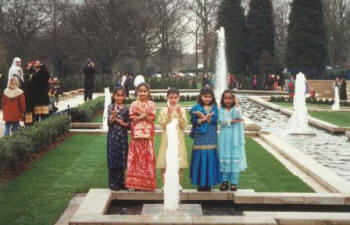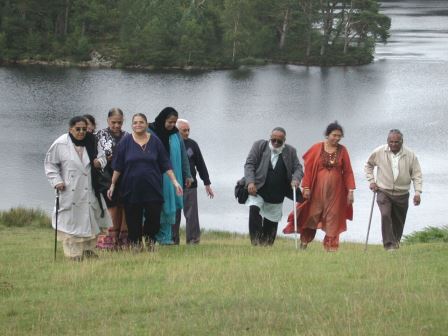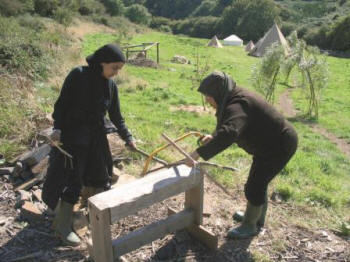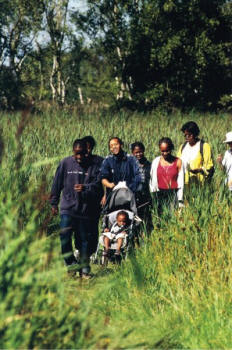A Welcome in our Green Spaces

Judy Ling Wong CBE
President Black Environment Network

Many members of the BAME (Black and Minority Ethnic) communities do aspire to access green spaces and the countryside as a result of the work of the Black Environment Network (BEN) in partnership with the environmental sector over the years. However, BAME communities, as a whole, are a moving target. The people we need to work with now are not the same people we served years ago. Newcomers arrive for all sorts of reasons from civil unrest to simply looking for a better life. One main characteristic is that most BAME communities live in urban areas where most of the job opportunities are. Those in low-paid urban jobs find it hard to afford the cost of transport to visit different places. The lack of a tube fare across London, for example, stops many from ever having the pleasure of seeing the deer in Richmond Park. Those with nice green spaces within walking distance are very lucky indeed, but it is still a deprivation to be unable to enjoy the full range of beautiful places. So finding money for the journey remains a core issue.

For green spaces within walking distance, site managers need to be savvy about who are new to the locality, and which BAME groups may have been historically neglected. The most important and basic move to make is to allocate time to consistently develop relationships with local BAME community groups. Welcoming them into the spaces, and approaching community leaders to hear directly about their needs over a cup of tea, introducing them to key staff and explaining what is on offer lays down the long term development of building the enjoyment of green spaces into the lives of BAME groups. Cafes in green spaces need to offer a range of food and drink that reflect cultural needs. Seeing green spaces, from small parks to open countryside as multiuse spaces with a programme of activities, from festivals to yoga outdoors, and providing points of interest such as trails, helps to bring more people in, not just BAME groups.
People love having a choice of things to do besides relaxing and walking. Groups are often shy of asking to use a green space unless there is a friendly relationship. When they built up courage to finally ask, one BAME group was delighted to find that they were welcome to celebrate Congo Independence Day with a BBQ in Hainault Forest.
Some years ago, Brixworth Country Park in Northamptonshire worked with local BAME groups to put together a multicultural festival that completely broke the ice for everyone. The annual festival expanded from year to year until in the end it grew too large to manage!

Further afield, the cost of bringing people into the countryside means funded developmental work and organised trips, and therefore consistent fundraising. Many BAME groups do not have suitable clothing or footwear and the countryside remains an unknown quantity. Urban newcomers often do not know where to go and are wary of getting lost or being in a strange place, unaccompanied, and subject to being stared at as curiosities, although the locals in the countryside are also having their own moment of strangeness to see BAME groups present. It takes time for both sides to get used to BAME presence in the countryside and shrug it off as normality.

Organised trips, targeting suitable first places to visit with a range of interesting activities, set the scene. On our organised trips, BEN always had a set of waterproofs and wellingtons of various sizes on board our minibuses.
The work of BEN in partnership with the environmental sector over the years has enthused enough ethnic minority groups to love the countryside so that working together with the Campaign for National Parks, through the Mosaic Project, over 200 BAME individuals were identified and trained as National Park Champions to do in-reach into their own communities. They were introduced to every aspect of their nearest National Park, health and safety, fundraising, the range of activities available and the key staff to work with, so that they can confidently organise trips with programmes of activities for their community members to enjoy our great National Parks. This idea of training knowledgeable experienced champions can be extended to more local places and the city fringe, so that BAME members can lead on accessing a range of green spaces and advocate for what they need and wish to do.
Access to green spaces and the countryside by BAME communities remains an issue, but the context in which it takes place is evolving, demanding new kinds of partnerships with new opportunities for action.
Updated information December 2022:
Since the recent experience of the Covid lockdown, access to green spaces has risen up the agenda. There is particular attention to the potential positive impact on physical and mental health for disadvantaged communities with the acknowledgement of the importance of access to green spaces in both the urban and rural settings. Green spaces such as gardens and allotments are seen by the general public as part of nature, but unless we make an effort many people do not have the experience of nature at large in the countryside, which is different.
There is also momentum in provision through the Social Prescribing framework, where GPs are made aware of the link between mental and physical health and access to nature through green spaces, with prescription of activities related to green spaces for their clients. Eco-anxiety, with the awareness of the existential threat of climate change, is being recognised by the psychiatric professions. Recently the Institute of Psychiatry published a special issue called “The Climate Crisis and Mental Health”. My paper "Untapped potential of nature-based activities for mental health: Need for further research" is included. The Institute recognises the barriers to academic research and in order to facilitate access, the academic research papers, unusually, are free to download. The value of downloading such an issue is usually around £340!! This is available for 6 months till March 2023. https://www.tandfonline.com/toc/iirp20/current
Parks for London has also highlighted the issues of mental health, with the publication of an important report “Young Green and Well” https://parksforlondon.org.uk/wp-content/uploads/2022/11/young-green-and-well-toolkit.pdf